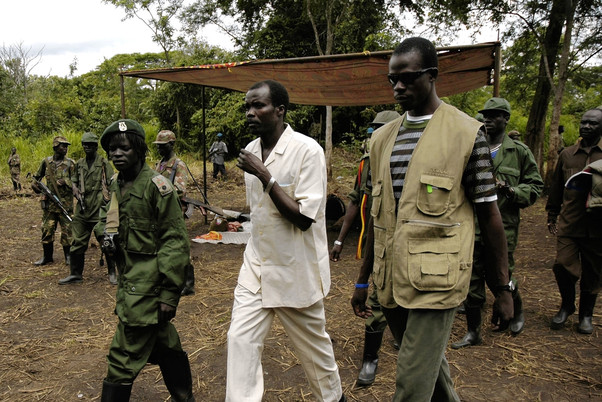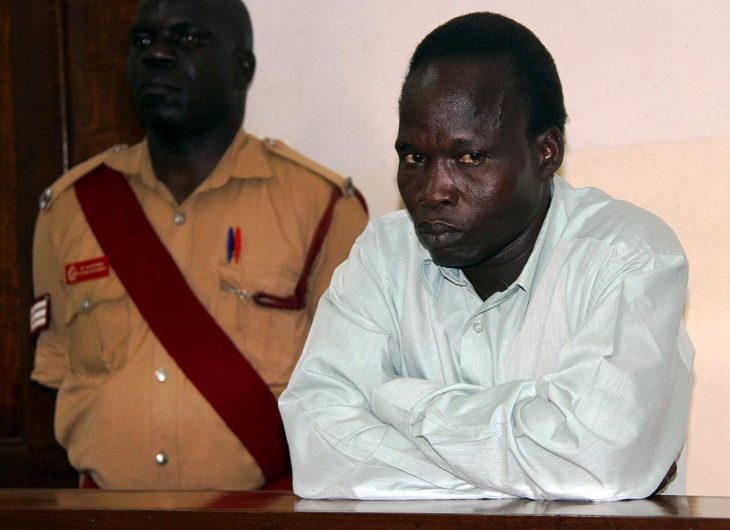The Uganda People’s Defence Force (UPDF) spokesperson addressed recent sanctions imposed on Lt. Gen. Peter Elwelu, clarifying that these actions are deemed as his personal issue and do not directly affect the UPDF as a whole.
Opposition leader Bobi Wine reacted to the situation, emphasizing the importance of choosing to serve the people of Uganda over blindly following what he described as President Museveni’s unlawful commands. He cautioned armed officers about the repercussions of obeying unlawful orders, citing the response of the UPDF to the sanctions against Lt. Gen. Peter Elwelu.
The Kasese killings, which led to the sanctioning of Lt. Gen. Elwelu, occurred during his tenure as the Commander of the Uganda People’s Defence Force second division in 2016. The sanctions specifically mention Lt. Gen. Elwelu’s involvement in gross violations of human rights, particularly in extrajudicial killings carried out by members of the UPDF under his command.
The sanctions rendered Lt. Gen. Peter Elwelu ineligible for entry into the United States, citing his actions while commanding UPDF forces.
The United States recently imposed travel restrictions on former Deputy Chief of Defence Forces, Lt Gen Peter Elwelu. This action came following allegations of human rights violations linked to an attack on the Rwenzururu Kingdom palace in 2016. The incident resulted in over 150 deaths and hundreds injured.
Lt Gen Elwelu stands accused of gross violations of human rights, specifically for his involvement in extrajudicial killings while commanding UPDF forces. These actions led to his designation by the United States, rendering him generally ineligible for entry into the country.
The incident occurred on November 27, 2016, during Lt Gen Elwelu’s tenure as Commander of the Uganda People’s Defence Force second division in Kasese District. At that time, he led an operation targeting the palace of Omusinga Wa Rwenzururu Wesley Mumbere.
Tensions in the region stemmed from the creation of the Obundhingiya Bwa Bamba cultural group, which seceded from the Rwenzururu Kingdom in 2014. The Rwenzururu Kingdom, dominated by the Bakonzo people, objected to the establishment of the new cultural institution.
Political rivalries escalated during the 2016 general elections, resulting in violence between different ethnic groups. The situation worsened after contested local elections, fueled by inflammatory rhetoric from political commentators aligned with various groups.
Efforts to calm tensions, including interventions by government officials, proved ineffective. Despite calls for dialogue, clashes continued, leading to casualties on both sides.
The culmination of violence occurred on November 26, 2016, when angry demonstrators targeted government installations, resulting in further bloodshed. The police responded with force, resulting in additional casualties.
The subsequent siege on the palace of Omusinga by security forces, led by Brig Gen Elwelu, sparked international condemnation. Human Rights Watch reported numerous casualties, including women and children, during the military operation.
After the raid, hundreds were arrested, with reports of torture and human rights abuses emerging from detention centers. Despite criticism, Brig Gen Elwelu took responsibility for the operation, expressing no regrets.
The aftermath saw heightened calls for accountability and justice from both local and international stakeholders. Various human rights bodies and foreign missions condemned the violence and demanded prosecution for those responsible.
In a surprising move, Lt Gen Elwelu was subsequently promoted before being dropped from his position and appointed a special presidential advisor. The decision came amid ongoing scrutiny and pressure for accountability.
Stakeholders have expressed mixed reactions to the sanctions, with some welcoming them as a step towards justice and accountability. Others argue for more comprehensive investigations and prosecutions to address systemic issues within the UPDF.




















